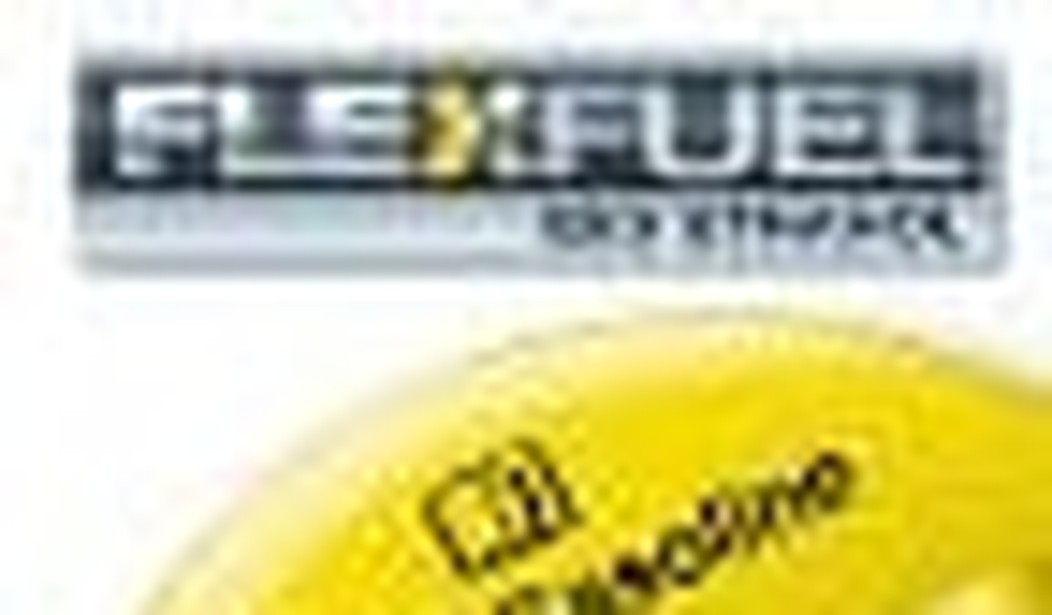On July 22, 2008, a bipartisan panel of senators (Brownback, R-Kansas; Salazar, D-Colorado; Lieberman, I-Connecticut; Thune, R-South Dakota; and Collins, R-Maine) introduced a bill that promises to benefit us in the War on Terror, in the economy, and in the environment.
The Open Fuel Standard Act would require that beginning in 2012, 50% of new automobiles, and in 2014, 80% of new automobiles, sold in the U.S. (imported and produced domestically) be warranted to operate on gasoline, ethanol, and methanol, or be warranted to operate on biodiesel.
This is far from pie-in-the-sky technology and far from a too-simple solution to the problem of Islamic terrorism. Oil is virtually the only product that the fundamentalist Muslim nations produce; without oil revenue, their funding for nuclear reactors, schools, and terrorist training camps is cut off. As engineer and author Robert Zubrin also reports in his recent book Energy Victory, the technology for flex-fuel cars has been around for a while. Engineer Roberta Nichols and her team at Ford developed a commercially viable flex-fuel car in 1986. In the early 1990s Ford did a full-production run of flex-fuel cars, and other manufacturers like General Motors and Chrysler followed suit. But with oil prices dropping, interest in flex-fuel cars — except by the farm lobby, which saw an opportunity to expand ethanol sales — dropped.
Since the 1980s, the technology has become more sophisticated, allowing consumers to pump without worry any combination of the above-mentioned fuels. A major objection currently to running cars on ethanol has been the surge in food prices attributed to the increased demand for corn for ethanol production. But Zubrin demonstrates that the energy sources can come from elsewhere: virtually any waste product for methanol, and high-sugar-yield crops grown in tropical and often impoverished countries for ethanol. Using such fuel would carry the added benefit to the environment by using waste products and producing less pollution from the exhaust pipe. It would help third-world countries develop economic independence and thus provide disincentives to those who would enter the U.S. illegally to find work. And we already have the model of Brazil. Beginning in the 1970s, through government mandates and incentives, flex-fuel cars were developed and manufactured, and energy-appropriate alternatives were made available to consumers at all gas stations. As a result, 90% of cars now sold in Brazil are flex-fuel, and the country, which also maintains off-shore oil exploration, can boast of energy independence.
History shows us that full independence is impossible as long as a nation relies on another for its fuel. Wars cannot be won without the fuel necessary to power tanks, planes, and other vehicles. Zubrin recounts the lesson from World War II: the Allies were able to keep Germany and Japan in check by preventing access to their sources of fuel.
During our own time of war, the War on Terror, we need to break free from our dependence on Middle Eastern oil. Flex-fuel would provide consumers more choice in terms of what fuel they use, with only an estimated $100 to $200 additional cost per car. That’s only a few tankfuls of gas! According to Zubrin, methanol today sells for $1.50 a gallon, the equivalent to $2.80 per gallon for gas (allowing for lower ratio of miles to the gallon).
In a town hall meeting last Friday at the General Motors Technical Center in Warren, Michigan, Republican presidential candidate John McCain affirmed his support for flex-fuel technology. He also reaffirmed his commitment to the environment and postulated that even if the predictions about global warming are exaggerated, playing it safe with environmental measures will have the added benefit of handing down a clean environment for future generations. McCain can set himself apart from the humanity-hating environmental extremists, who would have us simply conserve and give up on technological progress and growth. Having “dialogues” with leaders of oil-producing terrorist regimes is not the American way, either. Innovation and independence are.
The grassroots group for energy independence, Citizens for Energy Freedom, will be holding its founding convention at the Iowa Events Center in Des Moines, September 13-14. Zubrin, who is a key organizer, encourages all who want to help break the oil cartel that is looting America and funding our Islamist enemies to be there.









Join the conversation as a VIP Member